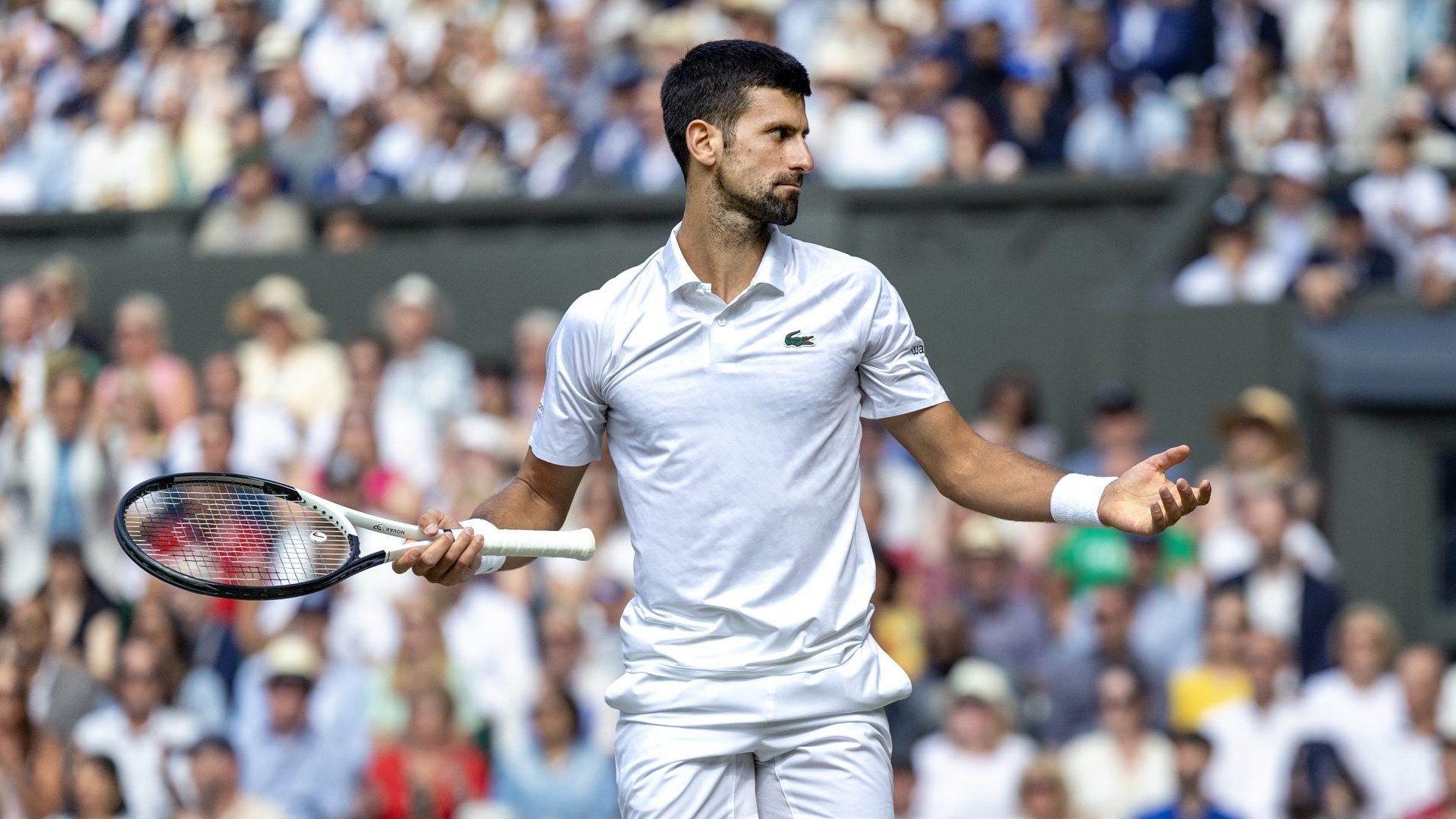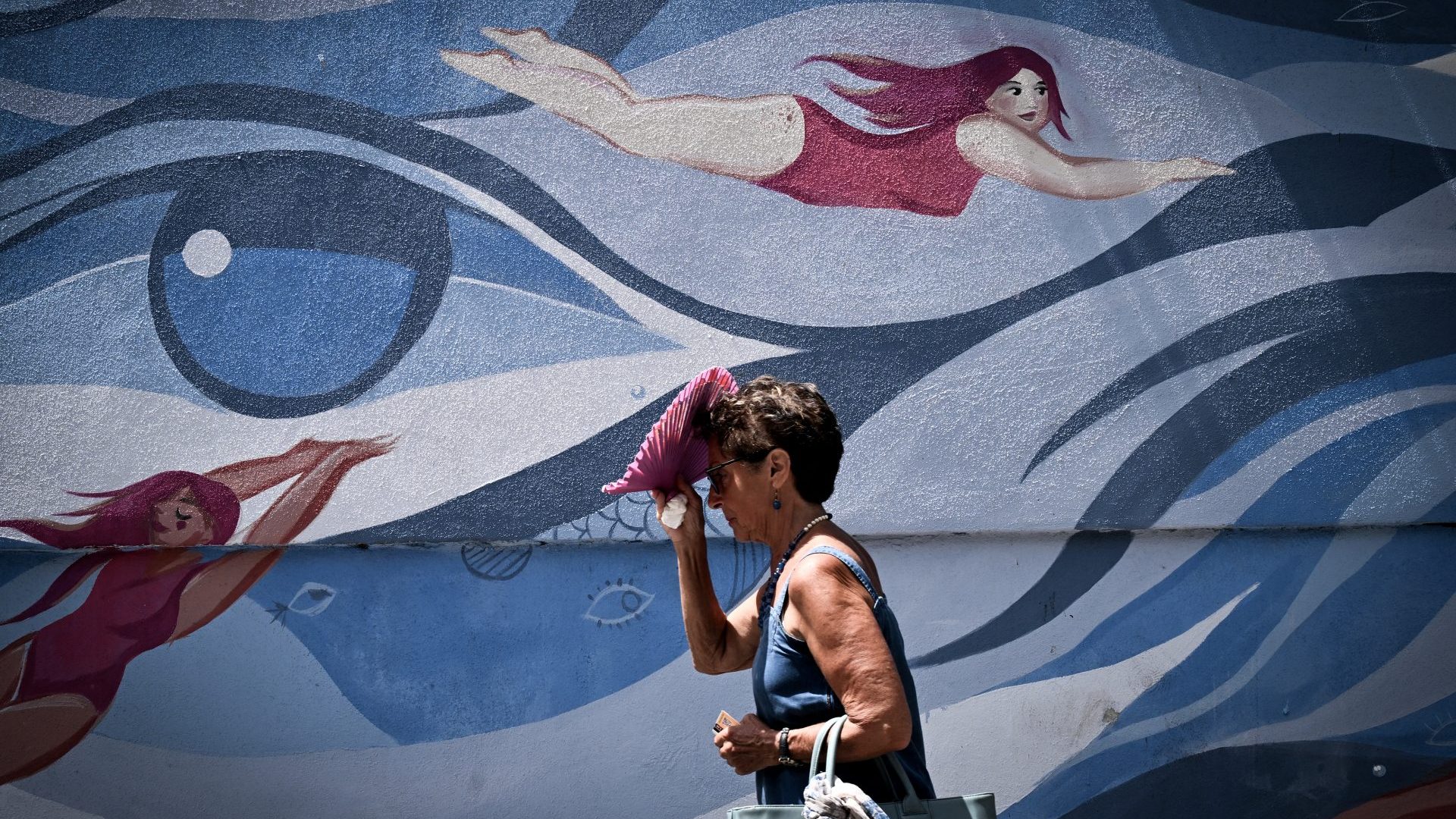It was July 16, another hellishly hot day in Belgrade, which during summer turns into a burning concrete jungle. Since it was Sunday, my friends and I were looking to hit the pool in an attempt to cool off our souls and bodies.
However, it was also the Wimbledon final, and Novak Djokovic was facing the young Carlos Alcaraz. The poolside crowd was divided. One group was happily booing Novak, the other wanted to watch him show the world once more he was the greatest of all time – the GOAT.
Yes, polarisation around Djokovic is a thing in Serbia as well, although here his followers drastically outnumber the haters.
The word “followers”, with all its religious implications, perfectly fits the drama around Djokovic. I was never a fan. My love of tennis ended when Pete Sampras finished his career. I admired Federer for his technique and his elegance.
However, the barbs thrown at Djokovic have won him some sympathy. He really is an outsider of the game, and his success story is quite astonishing. The well-known story is that, as a 13-year-old in 1999, young Novak practised in a derelict swimming pool during the Nato bombing of Yugoslavia. For people around here, it’s a story laden with national symbolism. If he could rise from the ruins, perhaps we all could.
Novak later became an outspoken patriot, to the extent that his views veered dangerously towards nationalism – he never made chauvinist statements. In fact, when he won in Montreal in 2007, the official speaker presented him as a “Croatian player”. Djokovic brushed off the mistake, saying “never mind, it is all the same,” which is blasphemy for Serbian ultranationalists, whose views are shaped by the bloody history of the two nations. He opposed Kosovo’s 2008 self-declared independence, and yet his family roots lie in Kosovo.
But Djokovic challenged the Federer-Nadal – or “Fedal” – dynamic duo of champion players who were worshipped by TV commentators and corporate executives alike. His post-match impersonations of other tennis stars were often seen as degrading, while his racket-breaking incidents were embarrassing, especially for a “dignified” sport such as tennis.
Most recently his holistic, hocus-pocus view of health and his own body attracted a lot of negative attention. During the Covid-19 pandemic he refused to be vaccinated, which caused huge controversy at the 2022 Australian Open and resulted in him being deported. Djokovic denied being a part of the anti-vax movement, arguing that he was an elite athlete and so he paid careful attention to what he put into his body. Djokovic’s fanatical vegetarian diet – often mocked here in carnivorous Serbia – has not diminished his success.
Whether he is the “Goat” or not, Djokovic remains oddly authentic, and happy to deviate from the expected behaviour of a global tennis star. And here in Serbia, though opinion is divided, on balance he is a legend. He has never hidden his roots, and he remains a great cultural ambassador for a country that still bears the stigma of the brutal 90s war in Yugoslavia.
He is the most famous Serbian in the world, and over the years has brought people a huge amount of enjoyment. And as he gave his gracious, tearful concession speech, having lost the Wimbledon final, even the people booing in the poolside bars would find it hard to disagree.



